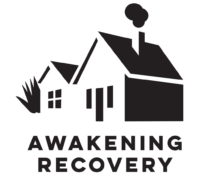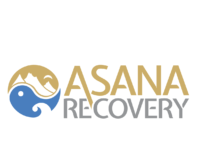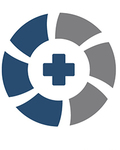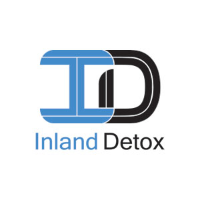The Progress Foundation – La Posada Crisis Program is a specialized treatment facility located in San Francisco, California, dedicated to providing comprehensive care for individuals experiencing psychiatric crises and co-occurring substance use disorders. Situated in the Mission District, the facility is easily accessible and serves as a vital community resource.
Location and Address:
Address: 810 Capp Street, San Francisco, CA 94110
Landmarks/Cross-Streets: Located in the heart of the Mission District, near 24th Street and Valencia Street.
Primary Purpose:
La Posada Crisis Program is designed to offer an alternative to hospitalization for individuals in psychiatric crisis, providing a supportive, community-based environment for stabilization and recovery. The program focuses on dual diagnosis treatment, catering to the needs of adults with mental health and substance use disorders.
Main Services and Target Population:
The facility offers a range of services tailored for adults experiencing psychiatric crises, with a special emphasis on serving the Spanish-speaking community. Key services include mental health assessments, counseling, and dual diagnosis treatment. The program is staffed by bilingual Spanish-speaking clinicians and support staff, ensuring culturally sensitive care.
Key Services and Programs
Dual Diagnosis Treatment
La Posada Crisis Program provides comprehensive dual diagnosis treatment, addressing both mental health and substance use disorders simultaneously. This includes evidence-based therapies such as cognitive behavioral therapy (CBT) and dialectical behavioral therapy (DBT), along with support groups and skills-based classes.
Mental Health Assessments and Counseling
Counselors at La Posada evaluate participants’ mental health to identify any substance use disorders and co-occurring conditions. Based on these assessments, individualized treatment plans are created, which may involve individual, group, and family counseling.
Crisis Intervention and Stabilization
The program offers intensive crisis residential treatment, providing a safe and supportive environment for individuals to stabilize and work on short-term goals. This includes 24-hour therapeutic support and access to one-to-one counseling, crisis intervention, and skill-building activities.
Group Therapy
Group therapy is a core component of the program, involving various modalities such as support groups, experiential therapy, and psycho-education. These groups help clients process their experiences, develop coping skills, and build a supportive community.
Levels of Care
Crisis Residential Treatment
La Posada Crisis Program operates as a crisis residential treatment facility, offering 24-hour intensive therapeutic support. This level of care is designed for individuals in immediate need of stabilization and crisis intervention, typically lasting up to two weeks.
Outpatient Services
While the primary focus is on crisis residential treatment, the facility also provides connections to outpatient services in the community. This ensures a continuum of care as clients transition from intensive residential treatment to less intensive outpatient programs.
Staff and Expertise
The staff at La Posada Crisis Program includes bilingual Spanish-speaking clinicians and support staff, ensuring that services are culturally sensitive and accessible to the Spanish-speaking community. The team consists of psychiatrists, nurse practitioners, and residential therapists who work collaboratively to provide comprehensive care.
Treatment Approach
Overall Philosophy
The treatment philosophy at La Posada is grounded in the Principles of Social Rehabilitation, emphasizing a home-like treatment environment, honorable therapeutic relationships, and active client involvement in treatment planning. This approach promotes rehabilitation and encourages the highest possible level of self-sufficiency for individuals.
Treatment Modalities
The facility uses evidence-based practices such as cognitive behavioral therapy (CBT), dialectical behavioral therapy (DBT), and experiential therapy. These modalities help clients address substance use disorders and co-occurring mental health challenges effectively.
Unique Features
Bilingual Services
La Posada Crisis Program stands out for its commitment to serving the Spanish-speaking community, with bilingual Spanish-speaking staff available 24 hours a day. This ensures that clients receive culturally competent care, which is crucial for effective treatment outcomes.
Community-Based Setting
The program operates in a community-based setting, providing a discreet and stigma-free environment for clients. This approach helps in reducing the need for hospitalization and promotes integration back into the community.
Accreditations and Quality Measures
While specific accreditations are not detailed in the available sources, Progress Foundation’s programs are recognized for their innovative and effective community-based behavioral health services. The IPCOM Project, a collaboration with the University of California, San Francisco, is nationally recognized for delivering integrated primary and behavioral health care.
Admission Process and Insurance
Admission Process
Admission to La Posada Crisis Program is on a voluntary basis. Referrals can be initiated through Sonoma County Behavioral Health or by contacting the facility directly. The admission process involves an initial evaluation and assessment to determine the appropriateness of the program for the individual’s needs.
Insurance
The facility accepts various forms of insurance, including Medicaid, private insurance, and self-pay options. Financial aid and sliding scale payment assistance are also available to ensure that care is accessible to those in need.
Contact Information:
For inquiries and admissions, please contact:
Phone: 415-285-0810
Address: 810 Capp Street, San Francisco, CA 94110













